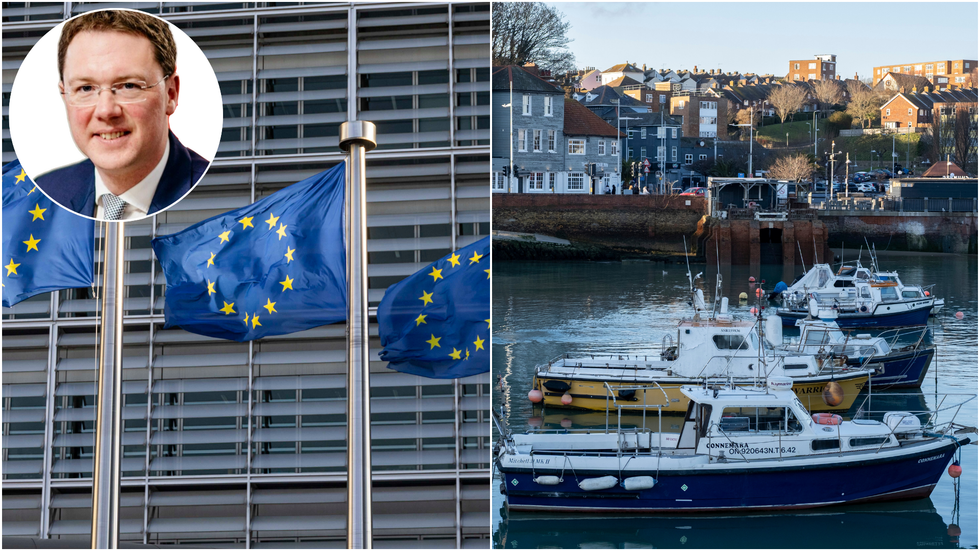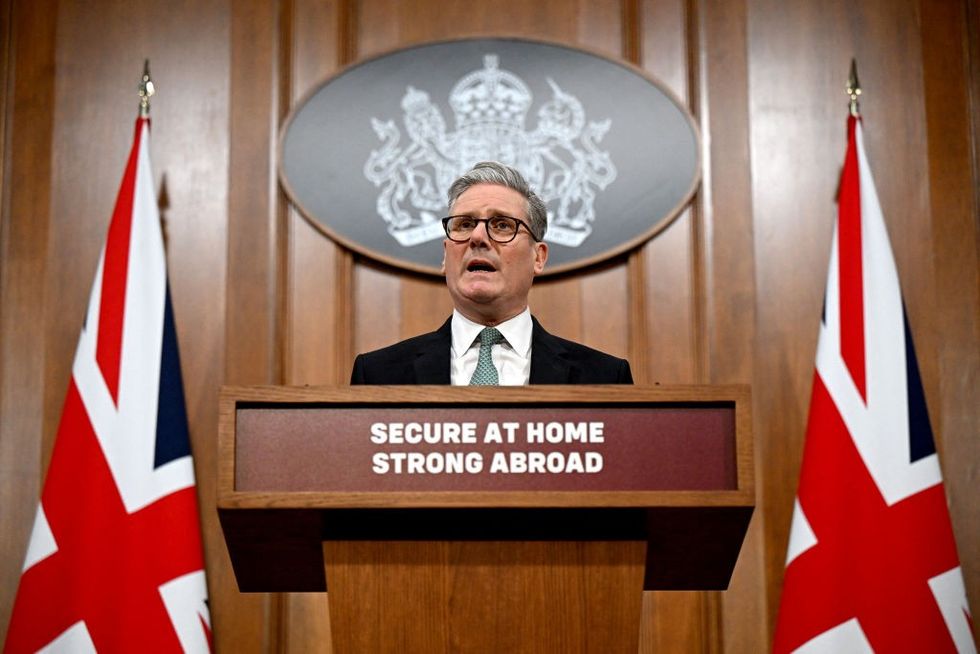The EU prove once again why we were so right to choose Brexit - Robert Courts KC
OPINION: The EU’s petty gambit over British waters proves we were right to leave, says Robert Courts KC.
Don't Miss
Most Read
Trending on GB News
It’s the kind of cynical, short-sighted politics that reminds the UK public precisely why we left the European Union.
Reports last week confirm what many speculated: France - and some of her Brussels allies - are actively seeking to tie a future UK-EU defence deal to enhanced access to British fishing waters. Essentially, unless we allow their trawlers to gather more of our catch, they’ll withhold European defence cooperation.
Think about that.
At a time when Ukraine is in turmoil, when Russian submarines menace the Atlantic, when Iranian-backed proxies are targeting shipping, when the US commitment to NATO is questioned, whilst all over the free world there is clamour for a united front against the most dangerous defence and security environment in our lifetimes - the EU is apparently more concerned with cod than cohesion.
This isn’t just petty. It’s perilous.

The EU prove once again why we were so right to choose Brexit - Robert Courts KC
GB News/Getty Images
Britain remains Europe’s foremost military power. We possess the nuclear deterrent. We have a proper navy. We’ve got globally significant air power, cyber capabilities, and intelligence links the EU can only aspire to. We shoulder much of the responsibility in NATO and remain at the core of the West’s strategic response, from the Baltics to the Red Sea.
And yet, some in the EU seem to believe that access to British fish should take precedence.
According to the Financial Times, EU diplomats are being urged by France to make any future UK defence pact dependent on better fishing rights when the current agreement expires in 2026. You’d like to hope that this is just a rumour. But it seems that it is a negotiating stance being adopted while Europe faces the most serious threats since the Cold War.
It tells you everything about the EU’s mindset. They endlessly talk about shared values, strategic autonomy, the need for unity in the face of aggression. But when push comes to shove, they revert to type: treating Britain not as a free and equal partner but as a renegade, breakaway province. Trading missiles for mackerel.
This is exactly the kind of transactional thinking that motivated the British public to vote Leave in 2016. There’s nothing in this about partnership or mutual interest. It’s just about leverage, about squeezing the UK whenever possible, regardless of the cost to wider European security.
This could not be more different from the approach the UK has taken. From the moment of the Brexit vote, the UK made clear that defence and security cooperation would remain above the exit negotiations. In her 2017 Florence speech, Theresa May said Britain would be the EU’s “strongest friend and partner” post-Brexit. The government’s White Paper on exiting the EU said the same, highlighting our “shared commitment to NATO”. The 2019 Political Declaration accompanying the Withdrawal Agreement went even further, stating that both sides would pursue “a broad, comprehensive and balanced security partnership.” Unlike the EU, the UK never sought to leverage defence for trade, fish - or anything else for that matter. We made those commitments unilaterally, because they were the right thing to do, and because we wanted to underline the reality that, whilst leaving the EU, we remained the closest of friends and allies.

Britain is showing signs of waking from her long security sleep.
Getty Images
And more: the UK has continued to step up on defence since Brexit. We’ve supported Ukraine, led in NATO’s northern flank, and carried out freedom of navigation operations globally. We’re still the nation others look to when the going gets tough.
Of course fisheries matter. No one’s saying they don’t. But the notion that French coastal constituencies should dictate how deeply the UK and EU coordinate on counter-terrorism, cyber warfare, or deterrence against Russia is ridiculous.
But this may not even be the main issue. We must take great care not to be distracted by rows like this, and prevented from scrutinising the contents of any such defence and security deal. France and her EU allies have long wanted to build the EU up as a defence power in its own right, to further a European polity, to weaken NATO.
The UK should remain open to defence dialogue with the EU, but not at any price. Serious, sensible co-operation between sovereign equals and allies is precisely what we should be doing. But duplicating NATO, weakening our wider strategic ties, or binding our freedom of action is dangerous and self-defeating.
Europe and the UK should be working closely together. But the UK must also continue to lead in other areas where it matters: through NATO, through AUKUS, through our Five Eyes allies and our growing Indo-Pacific partnerships.
The world is rearming. Britain is showing signs of waking from her long security sleep. But the EU? Still arguing about fish.







